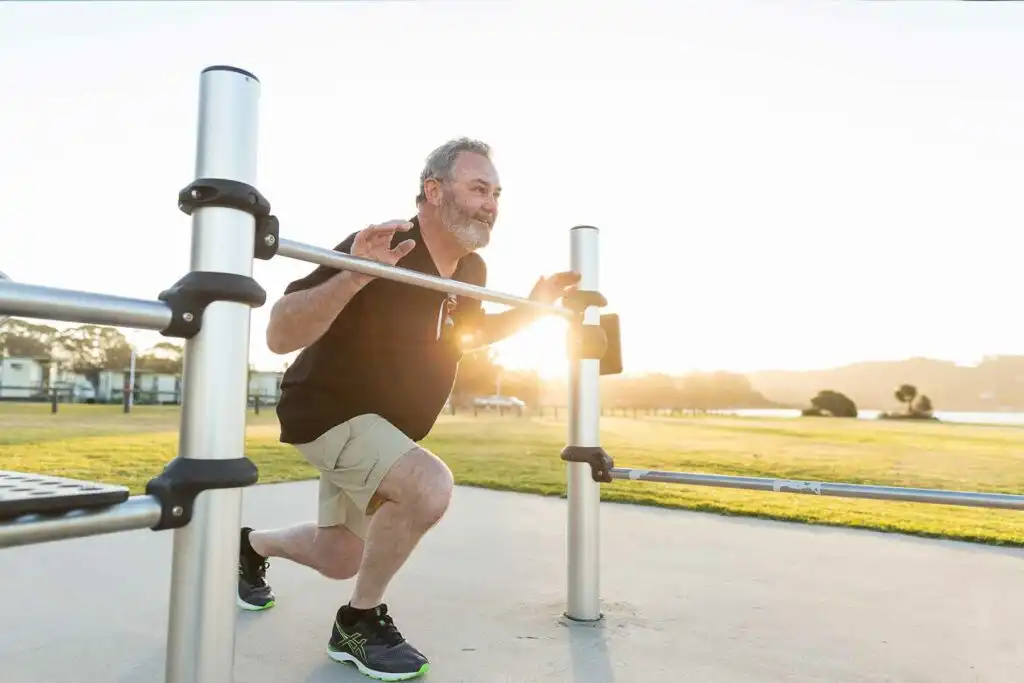Menu
Several factors affect the extent of your recovery following a stroke. Notably, studies indicate that individuals who participate in a specialised stroke rehabilitation program tend to achieve more positive results compared to those who don’t undergo rehabilitation. If you’ve recently had a stroke, actively participating in a dedicated rehabilitation program can play a critical role in enhancing your path to recover
The Impact of Stroke
After a stroke, you may encounter a diverse array of complications and impairments specific to stroke, including limb weakness or paralysis, numbness, communication difficulties, vision issues, and cognitive decline. These challenges can significantly affect your independence, compromising your ability to carry out essential daily activities such as:
Recovery from a stroke heavily relies on effective rehabilitation, which ideally starts shortly after the stroke incident. The right interventions, guided by a skilled rehabilitation team, can significantly impact your recovery journey. This process involves relearning lost skills and enhancing independence. With dedication, over time, many individuals are able to achieve positive recovery by:
An expert multidisciplinary team, skilled in neurological, orthopaedic and musculoskeletal conditions.
A program that is tailored to your unique needs and goals.
A genuine partnership between you and your clinical team so you have choice and control.
A warm and friendly environment where you feel safe and cared for.
Access to your rehab as an inpatient or through day services.
Under the direction of a specialist rehabilitation doctor, your program can include:
Rehabilitation medicine focuses on helping people recover and regain their abilities after injuries, illnesses, or surgeries.
Prioritises exercises and mobility training to enhance strength and functionality.
Aims to enhance your ability to engage in daily activities
An tailored method to get bodies moving and assist in reaching personal and health-related objectives
Aquatic exercises, conducted in warm water, alleviate pain, enhance muscle strength, boost circulation, and refine overall functionality.
Aims at improving communication skills and refining swallowing and drinking capabilities.
Helps improve digestion and overseeing nutritional intake.
Aids in cognition, brain function, behaviour, emotions, personality, and human development.
Centers on bolstering overall health and well-being through evidence-based, effective support.
Offering an extensive selection of cutting-edge technology devices

The therapy was brilliant. The physiotherapists were so wonderful, patient and experienced. Their care, commitment, encouragement and knowledge have been central to my terrific results.
There are several funding options available to access our programs. These include:
Fees and charges are dependent upon your health fund and level of cover. Please check with your health fund if any additional charges apply.
Before you are admitted or before commencing your program, we will obtain approval from your insurer.
A broad range of health care and support services are available to meet the clinical needs of eligible veterans and eligible dependants.
If you do not have a funding stream, you can also choose to self-fund your program.
As a fully accredited NDIS provider, our NDIS Therapy Supports service provides NDIS participants with evidence-based allied health therapies to support, maintain and increase function and wellbeing. Click to find out more.
The first step is to obtain a referral from your specialist or GP. Medical professionals can access referral forms by clicking here.
Once we receive your referral, we will be in touch to organise a time to meet with you to discuss and review your needs and goals. We will also provide a fee estimate.
We will be in touch to organise your therapy so you can begin your rehab journey.
What is a stroke?
A stroke occurs when the blood supply to your brain is interrupted or reduced, depriving it of vital oxygen and nutrients. A stroke can cause lasting damage to the brain. The part of the brain that is affected by the stroke may not be able to function properly. This can lead to problems with movement, speech, and thinking.
There are a number of common symptoms that can occur following a stroke. These may include paralysis or weakness on one side of the body, problems with speech and understanding, difficulty in swallowing, vision problems, dizziness, or problems with balance and coordination.
What are the most common types of stroke?
There are two types of stroke: ischaemic stroke (caused by a blockage to the blood flow to the brain) and haemorrhagic stroke (caused by bleeding into the brain – also known as intracerebral haemorrhage, or around the brain – called a subarachnoid haemorrhage).
Treatment and rehabilitation after stroke can help you to relearn skills and improve your quality of life. The sooner you begin stroke rehabilitation, the more likely you will be to regain abilities and skills.
Royal Rehab Private Petersham specialises in rehabilitation for stroke patients. If you or a loved one has experienced a stroke, there is no better place to turn.
Click here for our Privacy Policy.
"*" indicates required fields
